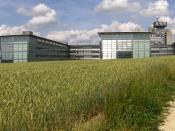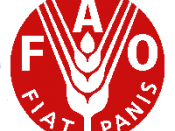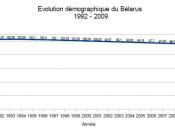The study of urban sociology is largely concerned with the social characteristics of residential areas, and the influence of area of location upon social structure and behavior. Urban sociologists see the urban environment or system, as "a unique conditioning agent of (among other things,) social, political and economic processes. In turn, processes driven by the urban system bear consideration when planning for the infrastructure of the cities of tomorrow. Understanding the interplay of spatial and social dimensions of the urban system, contributing determinants to the success of planning efforts for future sustainability within any context, is key. Further, recognizing the implications of unidentified contributing determinants is useful.
A "scenario" is a "description technique that enhances understandability of task related descriptions and communicability among stakeholders." M. Jarke believes that scenarios are descriptions of concrete system behaviors, and that they may summarize the behavior traces of existing systems. My research to date has yielded the findings of Organizational Process Design experts who maintain that there is a "lack of a unified research framework for scenario management, despite the various disciplines in which scenarios have received widespread attention."
(Those disciplines would most notably, include for example, the field of Information Technology.) In the absence of a narrowly defined set of guidelines for the scenario construction process, it would be encouraging, when attempting to perform forecasting relating to urban planning efforts, to learn that the process is decidedly useful in the discovery of goals, and perhaps also in identifying determinants of success. However, we must be mindful that (despite the potentially usefulness of scenario construction) as outlined within the Food and Agriculture Organization of the United Nations' website, scenarios are not forecasts of the future. They are simply "tools to analyze consequences of population increase and economic growth, and to study the effectiveness...



Excellent
I just read this essay and I was amazed at the quality and detail of this piece of work. Keep It Up!
1 out of 1 people found this comment useful.